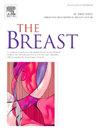推进治疗选择:CDK4/6抑制剂在HR+/HER2-转移性乳腺癌中的转换
IF 5.7
2区 医学
Q1 OBSTETRICS & GYNECOLOGY
引用次数: 0
摘要
目的:CDK4/6抑制剂(CDK4/6i)的使用彻底改变了激素受体阳性/人表皮生长因子受体2阴性(HR+/HER2-)转移性乳腺癌的治疗。特定CDK4/6i的选择可能受到不良事件(ae)的影响。最近,意大利药品管理局(AIFA)批准了切换CDK4/6i治疗不可接受毒性的可能性。这项研究探讨了肿瘤学家在CDK4/6抑制剂转换方面的经验和未来观点。方法:在意大利肿瘤医学协会(AIOM)的支持下,我们对92名肿瘤学家进行了调查,评估AIFA批准对患者管理的影响。结果:调查显示,48%的参与者对AIFA的决定并不感到惊讶,76%的受访者认为这一机会将显著影响他们的治疗选择,加强对患者的不良事件管理。然而,49%的受访者强调需要更多关于CDK4/6i开关安全性和有效性的真实世界证据。96%的应答者报告停药率在0%至25%之间,便秘和血液毒性是最常见的停药原因。开CDK4/6i开关的肿瘤学家报告说,这些患者中大多数是一线治疗(85%),最常见的第二CDK4/6i最常开始的是帕博西尼(69%),然后是阿贝马西尼(17%)和核糖西尼(14%)。在以全剂量开始第二次CDK4/6i治疗的患者中,66%的患者不需要减少剂量。结论:我们的调查强调了允许CDK4/6i转换的重要性,因此可能促使肿瘤学家调整他们的治疗选择,从而更好地管理ae以改善患者的预后。本文章由计算机程序翻译,如有差异,请以英文原文为准。
Advancing treatment choices: CDK4/6 inhibitor switching in HR+/HER2- metastatic breast cancer
Purpose
CDK4/6 inhibitors (CDK4/6i) use has revolutionized the treatment of hormone receptor-positive/human epidermal growth factor receptor 2 negative (HR+/HER2-) metastatic breast cancer. The choice of a specific CDK4/6i may be influenced by adverse events (AEs). Recently, the Italian Medicines Agency (AIFA) approved the possibility of switching between CDK4/6i for unacceptable toxicity. This study explores oncologists' experiences and future perspectives on CDK4/6 inhibitor switching following this new approval.
Methods
With the support of the Italian Association of Medical Oncology (AIOM), we conducted a survey among 92 oncologists to assess the impact of AIFA's approval on patient management.
Results
The survey showed that 48 % of participants were not surprised regarding AIFA's decision, with 76 % of respondents believing that this opportunity would significantly influence their treatment choices, enhancing AEs management for patients. Yet, 49 % of respondents emphasized the need for more real world evidence on CDK4/6i switch safety and efficacy. 96 % of respondents reported discontinuation rates between 0% and 25 % of patients, with constipation and hematological toxicity being the most frequent treatment discontinuation reasons. The oncologists prescribing CDK4/6i switch reported that most of these patients were in first line treatment (85 %) and the most common second CDK4/6i most frequently initiated was palbociclib (69 %), then abemaciclib (17 %) and ribociclib (14 %). Among those who started the second CDK4/6i at full dosage, 66 % of patients didn't require a dose reduction.
Conclusion
Our survey highlights the importance of allowing CDK4/6i switching, thus likely prompting oncologists to adapt their treatment choices, leading to better AEs management for improving patients’ outcome.
求助全文
通过发布文献求助,成功后即可免费获取论文全文。
去求助
来源期刊

Breast
医学-妇产科学
CiteScore
8.70
自引率
2.60%
发文量
165
审稿时长
59 days
期刊介绍:
The Breast is an international, multidisciplinary journal for researchers and clinicians, which focuses on translational and clinical research for the advancement of breast cancer prevention, diagnosis and treatment of all stages.
 求助内容:
求助内容: 应助结果提醒方式:
应助结果提醒方式:


